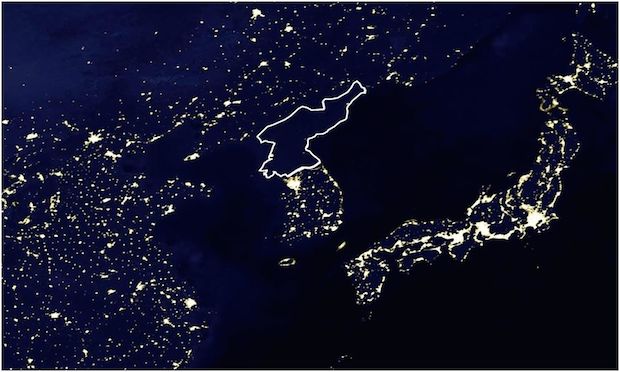North Korea Won’t Be Denuclearized

Mira Rapp-Hooper does an excellent job spelling out why the denuclearization of North Korea is an impossible goal and why the administration’s refusal to acknowledge this puts the U.S. on the path to a disastrous war:
By clinging to the notion that North Korea can still be denuclearized and denying that it has achieved a long-range strike capability, Trump and his team gave themselves room to develop futile, dangerous military options that guarantee regional devastation. This logic is premised on the notion that there remains a window of opportunity for action, when, in fact, North Korea has now emphatically slammed shut that very window.
By denying North Korea’s nuclear and missile capabilities and insisting that there remains time and space for military action, the Trump team raises the risk of conflict on the Korean Peninsula. By threatening to start that conflict themselves, they raise the chance that Kim will miscalculate and lash out first.
The Trump administration has boxed itself in on North Korea by accepting a number of shoddy hawkish assumptions about “rogue” regimes, U.S. power, and preventive war. They regard deterrence as irrelevant or outdated when dealing with a “rogue” state because they wrongly perceive such regimes to be unpredictable and “crazy.” They assume that the U.S. can achieve any goal it sets for itself despite the evidence of the last two decades, and they still believe this because of a near-mystical faith in American “leadership” and “strength.” Because they have rejected the possibility of deterrence, they consider illegal and unjust preventive war an appropriate means for achieving their goals. Finally, the biggest mistake on the administration’s part is their inability to see things from the adversary’s perspective, and that causes them to misunderstand why North Korea does the things it does.
As Rapp-Hooper mentions, the president and other administration officials have repeatedly endorsed the idea that North Korea’s government is irrational and undeterrable. North Korea has given us no reason to think this is true, and many observers see their pursuit of a nuclear deterrent as proof that they are behaving as a predictable, rational actor. Just as the Bush administration did when selling its case for war with Iraq, the Trump administration has cited the regime’s cruel and abusive practices inside their own country as evidence of how the regime will behave internationally. These arguments made no sense 15 years ago, and they still make no sense, because they share the same flaw of conflating a regime’s authoritarian behavior at home with aggressive designs abroad. It is a rhetorical sleight of hand to try to trick the public into imagining that a cruel regime must also be a suicidal one, but this doesn’t hold up under scrutiny.
Most of the administration’s other errors flow from this basic misunderstanding of the North Korean government’s motives. If self-preservation is North Korea’s main concern, their regime can be deterred in the future just as it has been over the last six decades. If they have acquired nuclear weapons and the means to deliver them to protect themselves against attack, they aren’t going to use them unless they believe they are about to be attacked, so the worst thing the U.S. can do is telegraph its willingness to launch the attack they fear. The administration’s refrain that nuclear weapons don’t make North Korea more secure just strengthens that fear of attack. Because the regime considers this arsenal to be so important for its own survival, there is no punishment the U.S. can inflict or inducement that the U.S. can offer that will make them give it up. Under these circumstances, it would be crazy for North Korea to agree to denuclearization when the world’s most powerful government is declaring its willingness to attack them. North Korea’s leaders remember as well as anyone what happened to regimes in Iraq and Libya targeted by the U.S. that were disarmed, and they don’t intend to suffer the same fate. As long as the administration fails to understand the regime’s reasons for acquiring nuclear weapons, its policy is doomed to fail because the goal they have set cannot be reached.
Comments